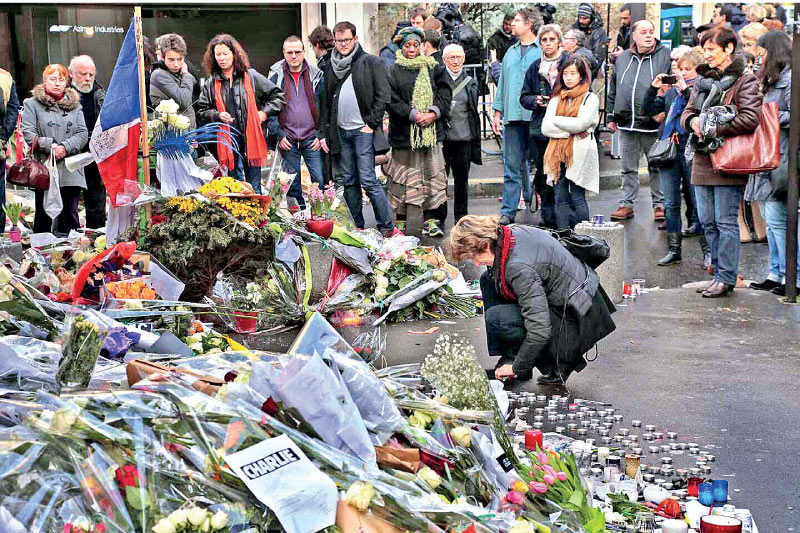Sunday Feb 22, 2026
Sunday Feb 22, 2026
Tuesday, 1 August 2023 01:33 - - {{hitsCtrl.values.hits}}

As tensions persist, it becomes increasingly crucial for societies to promote respect and empathy, fostering an environment where freedom of expression is balanced with a commitment to preventing hateful and inflammatory behaviour
By Seyed Hashemi
In recent years, instances of insulting Islamic sanctities, including insulting of the Holy Quran and offensive caricatures of the noble revered Prophet of Islam, Muhammad (peace be upon him), have been occurring multiple times in Europe.
The first incident dates back to 2005 when a Danish newspaper published 12 cartoons depicting the Prophet of Islam. Subsequently, in 2006, a magazine called “Charlie Hebdo” also published these images for the first time.
In 2015, a highly provocative move by a French newspaper against the Prophet of Islam triggered a wave of anger and hatred among Muslims. This led to an attack on the offices of “Charlie Hebdo,” resulting in the death of 12 people, including Jean Cabut, a satirical cartoonist, who was disrespectful to the Prophet.
France and some European countries claim to be champions of freedom of speech and consider insulting religious sanctities as part of that right. This is why we witness these recurring actions in countries like France, Denmark, and Sweden, which consider insulting sacred values as a form of freedom of expression.
France, historically known for its suppression of the Church and monarchy, views provocation, disrespect, and freedom of blasphemy as part of its revolutionary identity. As a consequence, France was the first country to officially decriminalise blasphemy and insult to religious sanctities since 1881, following the French Revolution in 1789.
However, it is worth noting that while insulting religious sanctities is considered a crime in France, those who commit such acts are not legally prosecuted. Nonetheless, in 1972, to combat racism, laws were enacted against crimes such as insult, defamation, incitement to hatred and violence, and discrimination. Subsequently, Holocaust denial was made illegal in France from 1990.
European heads of state, when faced with disrespect and insult to the sanctities of Muslims, invoke the defence of freedom of speech and belief. Nonetheless, they also obligate their citizens to respect one another and refrain from engaging in hateful conversations.
On Friday, 29 August, 2020, an incident of Quran desecration occurred in Sweden and Denmark, where a far-right group in Sweden set fire to a Quran, leading to unrest in the city of Malmo and confrontations between protesters and police. Prior to this, Rasmus Paludan, the leader of right-wing extremists in Denmark, had burned a copy of the holy Quran in one of the central neighbourhoods of Denmark, sparking a wave of racial-cultural tensions in the country.
In conclusion, the repeated instances of insulting Islamic sanctities in Europe, particularly through offensive caricatures and desecration of the holy Quran, have ignited intense controversy and anger among Muslims. While some European countries defend such actions under the banner of freedom of speech, the lack of legal consequences for those who commit these offences remains a contentious issue. The support of European leaders for such insulting actions is in fact the unveiling of a firestorm. However, as tensions persist, it becomes increasingly crucial for societies to promote respect and empathy, fostering an environment where freedom of expression is balanced with a commitment to preventing hateful and inflammatory behaviour. Finding common ground and understanding between cultures is essential to fostering a more harmonious and inclusive society.